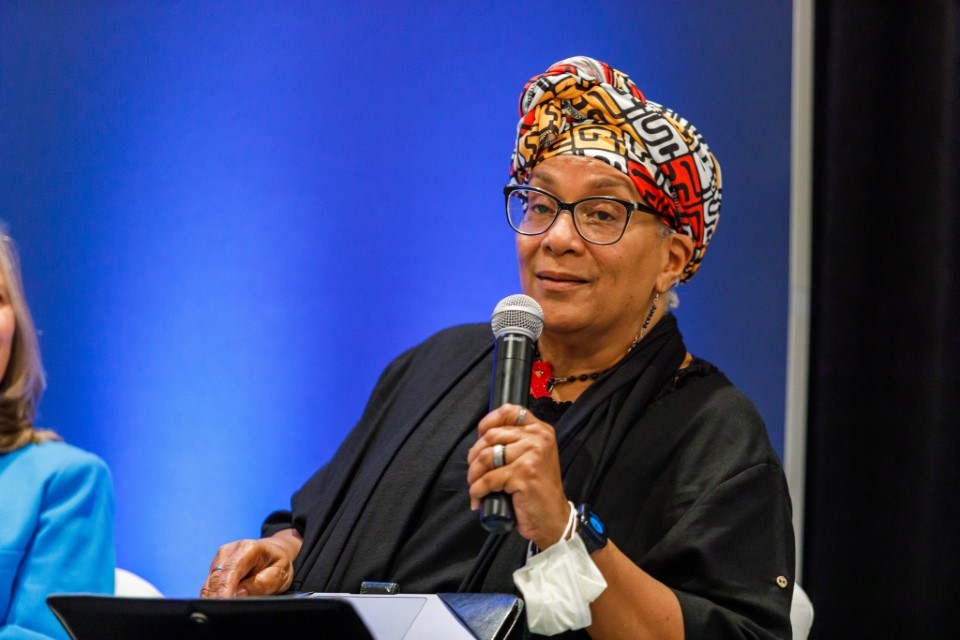As the population of people living with HIV (PLWH) ages, a critical issue has arisen at the crossroads of neuroscience, gerontology and public health: cognitive decline. With more than half of PLWH in the United States now ages 50 and older, we are seeing a significant shift in the challenges linked to long-term survivorship, mainly driven by scientific advances in the treatment and care for PLWH.
Yet, despite these advances, cognitive deficits are becoming alarmingly common among PLWH. These deficits are often dismissed as typical signs of aging, attributed to “just getting old.” However, growing evidence indicates that cognitive changes in PLWH are not merely a result of aging. Instead, they come from a complex interaction of biological, genetic, psychosocial and disease-related factors unique to this population.
When memory loss, slowed thinking and impaired executive function are dismissed as harmless, it delays necessary intervention and misdirects care away from underlying causes that may be modifiable and treatable. There is much more we can do to support cognitive health in PLWH.
What is Happening to Me? The Unique Pathways of Cognitive Decline in PLWH
Some cognitive changes naturally occur with aging. However, for PLWH, these changes may happen earlier, progress more quickly, and manifest differently because of the combined effects of HIV, ongoing inflammation, and other health issues like heart disease and diabetes. Mistaking HIV-related cognitive symptoms for normal aging can be harmful. It can delay the diagnosis of HIV-associated neurocognitive disorders (HAND), reduce adherence to antiretroviral therapy (ART), and decrease quality of life.
Including PLWH in the National Plan to Address Alzheimer’s Disease would be a crucial step toward protecting everyone’s cognitive health.
Generally, normal cognitive function refers to the brain’s usual abilities to think, learn, remember, make decisions, and solve problems. Many factors can affect our cognitive skills, including overall health. HIV is one such condition that can accelerate cognitive decline. How? HIV is a neurotropic virus, meaning it uses a key part of the human immune system, the T-cell, to enter the central nervous system (CNS). Once inside, HIV can persist in the brain even with effective HIV treatment or ART. The virus creates a “reservoir” or “storage room” in the brain, leading to ongoing inflammation and neurodegeneration. Many ART drugs, although effective throughout the body, do not cross the blood-brain barrier well. As a result, the CNS remains vulnerable to viral activity and inflammation, even when viral loads are undetectable.
What Must Be Done: Research, Intervention and Protection
Maintaining cognitive health in PLWH is achievable and essential. Here are three strategies that can help:
- First, expand screening for cognitive decline using culturally and linguistically validated tools in primary care, HIV clinics and aging services. Providers should be trained to recognize early signs of HAND and differentiate them from normal aging or psychiatric disorders.
- Second, interventions must address the whole person. This includes not just ART adherence, but also treatment for depression, substance use and cardiovascular risk factors. Programs that enhance cognitive reserve through education, cognitive training, physical activity, and social engagement are essential, especially for women and communities of color. PLWH from marginalized communities often enter older age with lower cognitive reserve due to a lifetime of structural inequality, limited access to care, and accumulated trauma. This reality must be recognized in clinical settings and policy frameworks.
- Third, research funding should prioritize longitudinal studies that examine sex differences, genetic vulnerabilities, and the interaction between aging and HIV. There is an urgent need for clinical trials evaluating cognitive-enhancing therapies for PLWH.
The Role of Policy and Advocacy
Policy can and must have a transformative impact. At the federal level, programs like the Ryan White HIV/AIDS Program should be expanded to include cognitive screening and neuropsychological services. Medicare and Medicaid should recognize HIV-associated cognitive disorders as eligible conditions for additional support and care coordination.
At the advocacy level, coalitions must raise awareness about cognitive aging in HIV and promote the integration of mental health into HIV care guidelines. Community organizations require support to lead outreach, education and peer-support programs that reduce stigma surrounding cognitive symptoms and help connect individuals to care.
Furthermore, policymakers must ensure that older PLWH are not left behind in broader aging and dementia initiatives. Including PLWH in the National Plan to Address Alzheimer’s Disease, for example, would be a crucial step toward protecting everyone’s cognitive health.
Conclusion
Cognitive health is vital for maintaining independence, quality of life, and dignity in older adults. For people aging with HIV, cognitive function should not be overlooked or dismissed as just a normal part of aging. It results from a complex history of disease, biological vulnerabilities and systemic inequalities, many of which can be addressed with the right tools, policies and compassion.
It is time to rethink cognitive impairment in HIV, not as an inevitable outcome but as a challenge that can be tackled through science, strategy and solidarity. This involves investing in prevention, tailoring interventions, and elevating the voices of those most impacted. Doing so honors the resilience of individuals who have lived through the epidemic and ensures they are supported not only to live longer but also to live well.
Vanessa Johnson, JD, is co-executive director of Ribbon—A Center for Excellence (Ribbon), and a 36-year HIV survivor.
Ribbon provides education and training to individuals and organizations to enhance their contributions to the local, regional, and national chronic disease health sector.
Photo caption: Author Vanessa Johnson speaking at the On Aging 2025 conference in Orlando, Fla.
Photo credit: David Rosario/Dro Photography













